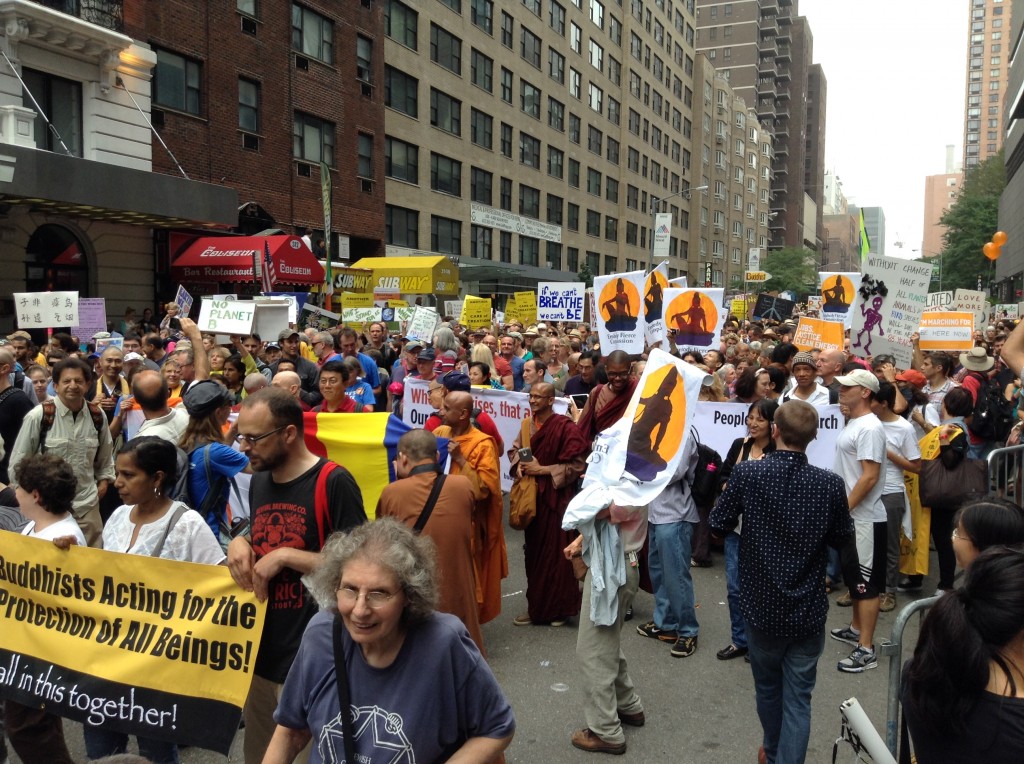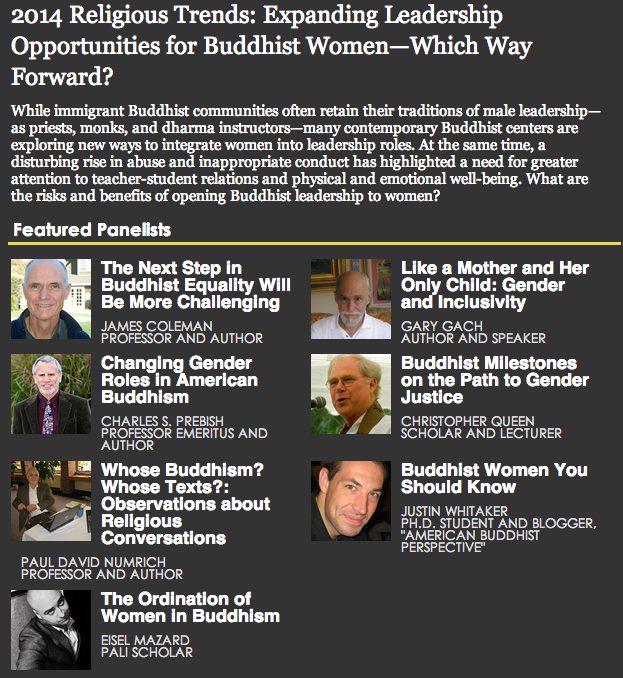
The terrible shooting rampage at the Washington Navy Yard, perpetrated by a disturbed young Buddhist named Aaron Alexis, has certainly been cause for a lot of reflection about Buddhism and violence in the last two days. “[Is this] the first American Buddhist terrorist?” my dear friend and Patheos colleague Justin Whitaker asked provocatively over at American Buddhist Perspective. The post inspired a response from Shambhala Sun‘s editor-in-chief Melvin McLeod, and was also discussed quite a bit in this Washington Post article. More articles about the Buddhist angle to this story continue to pop up, even as I write this.
Among the most helpful and/or astute, in my opinion, have been this Los Angeles Times article, Justin’s “mea culpa”, and especially my other great pal Joshua Eaton’s article for Religion Dispatches.
One thing that connects all three of these pieces is a clear-eyed look at things as they are (or were). Buddhism enjoys a lot of positive stereotyping in the West. This sure comes with a lot of nice perks, but also creates some problems for us as well. Looking at things on a somewhat vulgar meta level, one outcome of the Washington Navy Yard tragedy for us as Buddhists might be that we (and others) will more fully grapple with the difficult reality that, yes, Buddhists are human beings too — emphasis on the human part.
In the Dhammapada, the Buddha says:
All tremble at violence; all fear death. Putting oneself in the place of another, one should not kill nor cause another to kill.
All tremble at violence; life is dear to all. Putting oneself in the place of another, one should not kill nor cause another to kill.
To me, the implication here is very clear: for each of us, for all beings, our life is precious, and we all experience some fear and anxiety around the prospect of our death. This being the case, if we all, each of us, want to pursue a life of happiness, we should look after one another and not harm or kill each other. This is undoubtedly one of the reasons that the first precept of a practicing Buddhist is to not kill.
In addition, Buddhism’s most fundamental virtues are loving-kindness, compassion, empathetic joy, and equanimity. These are not qualities characterized by violence. Quite the opposite, in fact; lawyer it all you want, but in the end the essence of the Buddha’s teachings are non-violent. The Buddhadharma offers a practical path out of the madness of violence and suffering.
That being said, it is a fact that there have been so very many great and small acts of violence committed by Buddhists around the world and throughout history. Elsewhere in the news right now, for example, we’ve been hearing a lot about acts of violence perpetrated against Muslims by Buddhists in Burma — some of this incited and even committed by Buddhist monks. Buddhists can be and are in some cases violent. It’s a sad fact, but one we must address without, as Joshua puts it, “excommunicating” them.
At the same time, perhaps the Washington Navy Yard tragedy has much, much less to do with Buddhism than it does with other matters. Justin, for instance, points to mental illness as “the real issue.” And then there’s the perennial problem that hasn’t been as explored in this case just yet (perhaps because we’re too busy pondering about Aaron Alexis’ Buddhist practice): guns.
To my way of thinking, the editors of Tricycle: The Buddhist Review got the response exactly right. What they said was pithy and and right on point. They nailed it. Here it is in full:
It appears that Aaron Alexis, the gunman in the massacre at the Washington Navy Yard, was a Buddhist. In the Washington Post a headline reads, “Buddhist community ponders apparent link between their faith and Navy Yard shooter.”
We don’t think questions like “What does it mean to be a Buddhist?” or “How could a Buddhist do such a thing?” are at all relevant here. There is certainly no need to defend Buddhism or to look specifically for Buddhist lessons in what happened. This tragedy did not happen because of or despite Aaron Alexis’s connection with Buddhism. It happened, as similar mass killings have happened, because a deeply troubled person with easy access to high-powered firearms went on a horrific rampage. There is no reason to think that without a change in our gun laws these tragedies will cease and every reason to assume they will continue happening, as they are, with increasing frequency, and we can be sure that people of any and all religions, and no religion at all, will continue to be both perpetrators and victims. For all of us, whether Buddhist or not, that is something worth pondering.
It’s important to talk about Aaron Alexis, but the Trike editors remind us not to forget the victims. They didn’t need to die. Their deaths were senseless, and might have been prevented if we, as a country, got our collective act together to pass more meaningful gun control legislation.
Let’s take at least some of this energy that we’re putting into conversations about Buddhism and violence, and put it into doing what it takes to make sure these all-too-common shooting rampages stop. Right now. Join the movement demanding action to end gun violence here:
May all beings be well.
May all beings be happy.
May all beings be peaceful.











